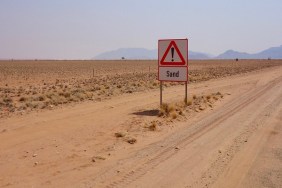(sources: muhammadahmed, petervanallen)
If you were to ask the average person what the most important resource was for the development of human society and is today for the continuation of its functions, you will get many answers, but water will probably not be one of the top choices. This is partly due to ignorance and misconceptions about the availability of water and our usage habits and partly because of the lack of mainstream attention towards the issue. Here’s a look at the historical and current importance of water and its vital role in our development and sustenance, and how we continue to disregard its importance and and ignorantly waste billions of gallons of it.
Historical Importance of Water
(sources: tour egypt, looklex)
The difference between flourishing civilizations and those that remained small and eventually collapsed was in a major way their geographic location in relation to water. Those that were located around major waterways, like Mesopotamia and Egypt, owe their development to waterways (Tigris and Euphrates for Mesopotamia and the Nile for Egypt), just as much as relatively modern societies like New York City and Chicago did to their ports in their early days. Not only did their proximity to water give access to safe water for drinking, but also allowed irrigation for agriculture, development of trade routes with other nations, and water for bathing, washing, and more recently, for recreation.
Using Water for Agriculture (Irrigation)
(source: baliwwwdotcom)
Part of the reason why water is so important is because of the versatility of the resource. Most importantly, we use water for agriculture (via irrigation). In agrarian economies, where agriculture is the main means of sustenance, up to 90 percent of the countries’ water resources are used up by irrigation (where agriculture normally accounts for 60-70 percent).
Using Water for Drinking (Hydration)
(source: Wikipedia)
You probably know that the human body is approximately 60% water (blood is 95% water). For our bodies to function properly, we need on average 2 liters of water per day to stay hydrated. These 2 liters are partly consumed through foods, fruits, vegetables, and other beverages, and partly from drinking water. However, in spite of these requirement, about 1.1 billion people – mostly families in developing countries – don’t have access to safe drinking water, leading to the deaths of thousands of children every day.
Using Water at Home (Hygiene and Sanitation)
(source: wssc)
One of the most extensive uses of water is domiciliary. We use water inside the home for bathing/showering and grooming, washing clothes and dishes, flushing the toilet, and generally keeping the place clean. Similarly, we use water outside the house for watering lawns and gardens or using sprinklers, washing cars, and to fill pools for kids. All in all, though most of these uses are justified and necessary, we waste an excessive amount of water by simply not paying attention to efficient use and conservation. At the same time, about 42 percent of the world’s population has no proper means of sanitation which when coupled with the lack of safe drinking water, is responsible for the deaths of almost 5,000 children per day.
Wasting Billions of Gallons a Day
Between wasting water for recreational purposes (water parks, water skiing, swimming/pools, etc.), running showers and faucets and leakages, and using excessive water for raising meat, we waste billions of gallons of water a year. As an example (and one of the reason to embrace an organic and vegetarian lifestyle), it takes 5,000 gallons of water per pound of meat and 25 gallons of water per pound of wheat. Furthermore, a meat-based diet demands approximately 4,000 gallons of water per day while a vegetarian diet demands less than 10 percent of that. While it is true that a little over 70 percent of our planet is covered with water, it is also true that approximately only 2 percent of is drinkable right away (the other 98% is too salty, and while desalination is an option, it isn’t always economically viable or environmentally friendly).
While the world is focused on an energy crisis and is fighting wars over oil (or working towards finding solutions through alternative energy), a new kind of politics has been quietly emerging – water politics. Due to misconceptions about the availability of the resource, a complete disregard for its conservation and widespread misuse, water pollution, and overpopulation, water is fast become our most precious and most wasted resource, and is already projected to be the next scarce resource we will fight over. As outlined by the IHT, in another two decades, approximately 47 percent of the world’s population will be living in areas with severe water stress 2030, about 47 percent of the world’s population will be living in areas with severe water stress, making it one of the greatest human development challenges of the century.
But all is not gloom and doom. There are many organizations working together to increase awareness of the water problem and helping people waste less. Please check out the following resources for tips on more efficient water use and conservation.





